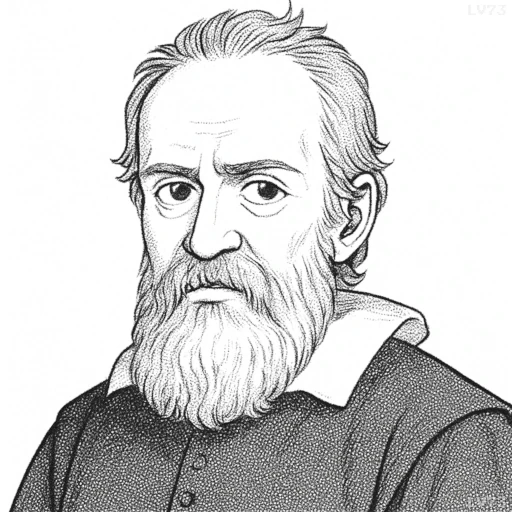“Philosophy is written in this grand book, the universe, which stands continually open to our gaze. But the book cannot be understood unless one first learns to comprehend the language and read the letters in which it is composed.”

- February 1564 – January 8, 1642
- From the Duchy of Florence (Italy)
- Physicist, astronomer, mathematician
table of contents
Quote
“Philosophy is written in this grand book, the universe, which stands continually open to our gaze. But the book cannot be understood unless one first learns to comprehend the language and read the letters in which it is composed.”
Explanation
In this quote, Galileo presents the universe as a grand book containing the knowledge and wisdom of the natural world, accessible to all who are willing to engage with it. He suggests that philosophy—the study of fundamental questions about existence, knowledge, and the nature of reality—is not found in sacred texts or abstract theories, but is instead embedded in the universe itself. However, just as a book requires the ability to read and understand its language, the universe too requires scientific reasoning and methodical observation to decipher its true meaning. Galileo emphasizes that reason and empirical investigation are the tools needed to interpret the natural world and uncover the truths written in the “letters” of the universe—whether they are the laws of physics, the movements of celestial bodies, or the principles governing life on Earth.
This perspective underscores the idea that science and philosophy are deeply intertwined. Galileo believed that understanding the natural world through careful observation, experimentation, and logical reasoning could provide profound insights into the deeper truths of existence. Today, this approach remains fundamental to modern science and philosophy. As we explore the cosmos, quantum mechanics, or the very nature of consciousness, we continue to interpret the universe as a vast text that we strive to understand. The language of the universe, according to Galileo, is mathematics and empirical evidence, which help us uncover the underlying principles that govern everything from the movement of planets to the behavior of atoms.
Galileo’s analogy also speaks to the idea that true understanding requires education and preparation. Just as one must learn how to read before interpreting a book, one must first develop the tools of scientific inquiry—such as mathematics, logic, and observation—before one can truly comprehend the workings of the universe. This emphasis on learning the language of nature is a reminder of the importance of critical thinking and education in the pursuit of knowledge, encouraging individuals to engage deeply with the world around them in order to reveal its hidden truths.
Would you like to share your impressions or related stories about this quote in the comments section?



